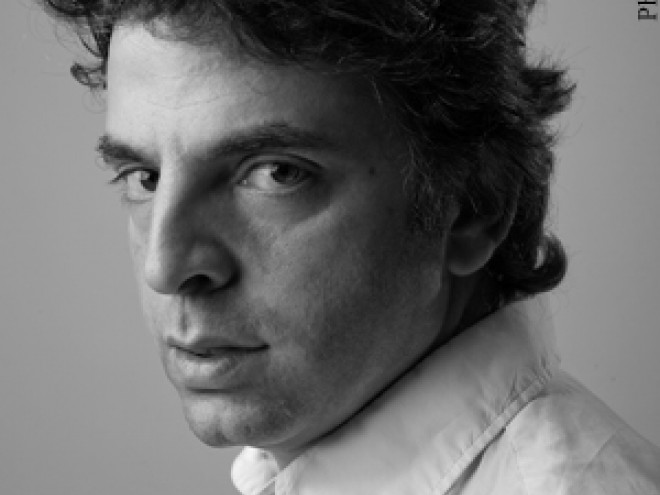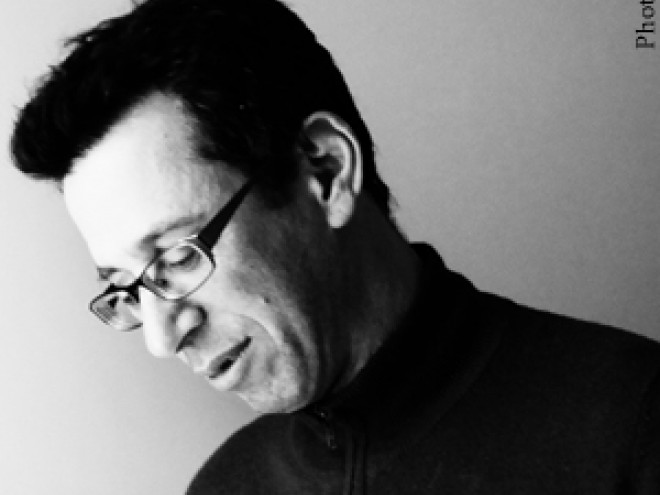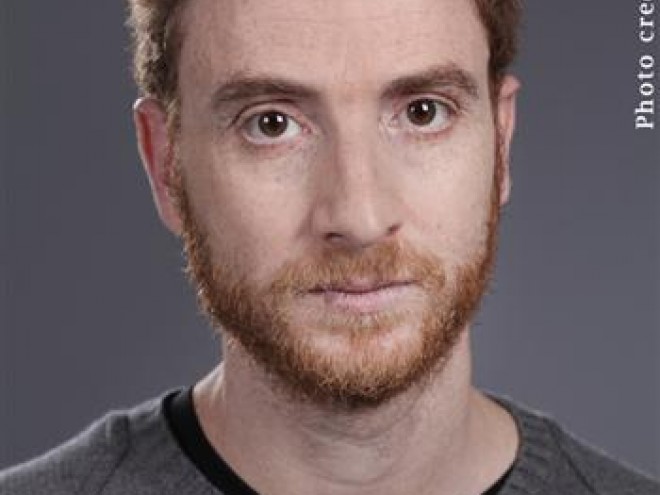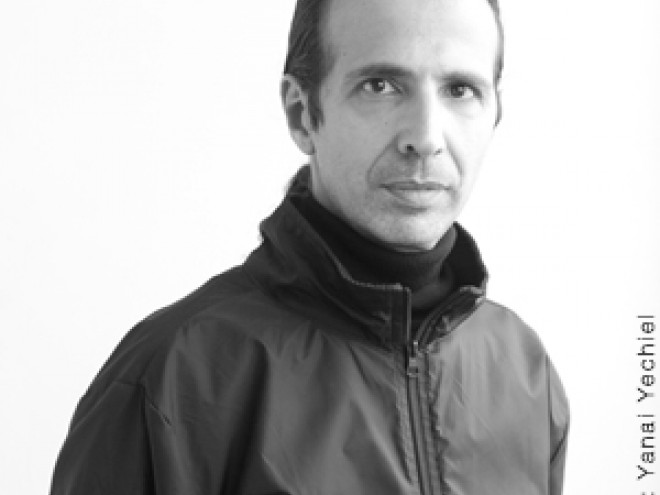 One Friday afternoon, Yael Unterman donned her funkiest pair of stockings (“tights” to American English speakers) and began her walk to synagogue in her Katamon section of Jerusalem. She thought “what is the worst that could happen?” about being seen on the street in such garish legwear — but she did not reckon on the producers of the hit Israeli TV show Srugim deciding to film Jerusalemites on their Friday afternoon walk to shul that day. She can still be seen in the background.
One Friday afternoon, Yael Unterman donned her funkiest pair of stockings (“tights” to American English speakers) and began her walk to synagogue in her Katamon section of Jerusalem. She thought “what is the worst that could happen?” about being seen on the street in such garish legwear — but she did not reckon on the producers of the hit Israeli TV show Srugim deciding to film Jerusalemites on their Friday afternoon walk to shul that day. She can still be seen in the background.
Just as interesting and delightful things happen to this writer, so too with the characters in her new short story collection, The Hidden of Things: Twelve Stories of Love and Longing. These linked stories are about characters who are the “Anglo” (English-speaking) analogue of the Srugim, living in Katamon, davening at the socially popular synagogues Yakar and Ohel Nechama, and discovering the perils and pleasures of the single life in Jerusalem. What distinguishes Unterman’s book from a Bridget Jones type of chick lit is the focus of her characters — like the characters in Srugim—on Jewish life and texts. Unterman is no stranger to the world of Torah study — her previous book was a biography of female Torah scholar Nechama Leibowitz, which was a Finalist for the 2009 National Jewish Book Award. In addition to her literary pursuits, Unterman teaches and lectures and leads Bibliodrama workshops for people of all backgrounds.
Beth Kissileff spoke to Yael Unterman by Skype.
Beth Kissileff: What is your background?
Yael Unterman: To some degree I grew up between at least two worlds. My dad is an open-minded Orthodox rabbi, and I was in Bnei Akiva, a religious Zionist youth group. On the other hand, I attended a Litvish Haredi school with classmates hailing from families of seventeen children, most of whom went on to Gateshead, an ultra-Orthodox girls’ seminary in England, though I personally stayed on to take A levels and O levels, the university preparatory tests.
No one explained to me how to live with all these contradictions; it took many years of struggle to resolve them. One result, however, is that I can appreciate people coming from different worlds, and understand people ranging from secular to ultra-Orthodox, and I draw on that in my writing. It is helpful to have resources to draw on, to be more accurate — to know people, not just invent them.
BK: I am curious about the connection between fiction and non-fiction, since your first book was a biography and your second a short story collection.
YU: I am aware that they are extremely different genres. I’m moving from left brain to right brain territory. I wrote my first work of fiction when I was ten, and loved novels growing up. But then from 18 – 28, I was exclusively in the world of Torah learning, the world of ideas. Suddenly, around 28, a yearning to return to fiction hit me very strongly.
Today, fiction is my preferred reading material and writing it is a joy and a pleasure. Working on the Nechama Leibowitz biography was an incredible experience, and I learned much and was inspired, but there was a limit to how creative I could be.
It is fair to say I love fiction; reading a good book can truly brighten my week. Books make a tremendous difference.
BK: I’m interested in the fact that you are living in Israel and writing in English. Are there others doing this, a community of writers who write in English in Israel?
YU: Yes, there is a writing program at Bar Ilan University in English which I attended a decade ago and which has continued to develop ever since. All of this sprang up from the vision of Shaindy Rudoff, a strong and visionary woman, who sadly passed away in my second year in the program, in 2006. It is amazing what one person can do. My Nehama Leibowitz biography illustrates that — the powerful effect one determined individual can have.
BK: What was your vision for this book? What did you hope to accomplish for readers?
YU: My vision for my book is to open this world of ”singles not by choice” to a wider audience, to show them that this is what people are going through. I’m not setting myself up as an expert on singles, I have not written a doctorate on it. Rather, my purpose was to reflect the experience for people who aren’t single, who may have thought they understood, so that they will close the book saying “oh right, oh I see now,” and have gained a bit more empathy, more understanding of this painful phenomenon. I’m aiming toward empathy, not condescension or pity. It’s a nuanced message.
I’ll add that the book is not only about singles, but also about religious journeyers, with a former rock star who becomes super religious, and a young confused Hasid who drops religion in Manhattan. Bottom line, the book is about seekers — seekers of love, of God, of clarity. They are all very human.
Beth Kissileff is the editor of Reading Genesis (Continuum Books, 2014) an anthology of academic writing about Genesis. Her novel Questioning Return is under review for publication and she is writing a second novel and volume of short stories. She has taught at the University of Pittsburgh, Carleton College, the University of Minnesota, Smith College and Mount Holyoke College.
Related Content:
- Nehama Leibowitz: Teacher and Bible Scholar by Yael Unterman
- In the Courtyard of the Kabbalist by Ruchama King Feuerman
- If You Awaken Love by Emuna Elon
Beth Kissileff is in the process of fundraising and writing grants to develop a program to assist rabbis of all denominations with writing and publishing books. Kissileff is a rabbinic spouse and author of the novel Questioning Return as well as editor of the anthology Reading Genesis: Beginings.



